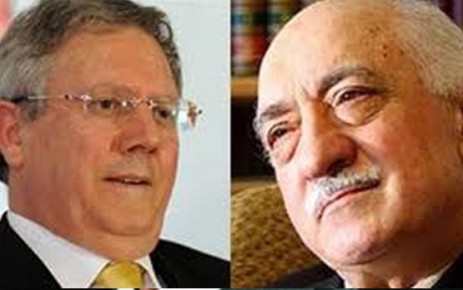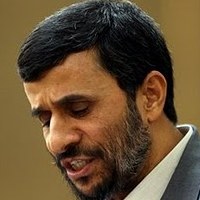![]()
Mon, May 28, 2012 | By Gareth H. Jenkins
This article was first published in the Turkey Analyst, vol. 5 no. 11 (www.turkeyanalyst.org), a biweekly publication of the Central Asia-Caucasus Institute & Silk Road Studies Program Joint Center. © Central Asia-Caucasus Institute & Silk Road Studies Program Joint Center, 2012.
On May 12, 2012, Istanbul rivals Fenerbahçe and Galatasaray played out a goalless draw in the final match of the Turkish 2011-2012 soccer season, handing the national championship to Galatasaray. After the match, Fenerbahçe fans took to streets and to social networking media such as Twitter to protest that they had been robbed. Much of their ire was directed at the Gülen Movement, the followers of the Islamic preacher Fethullah Gülen, who has been living in exile in Pennsylvania in the U.S. since 1999. It was the Gülen Movement, they claimed, that was behind a massive investigation into match-fixing first launched in July 2011 that had been primarily directed primarily at Fenerbahçe, severely disrupting its on-field and off-field activities and resulting in club chair, Aziz Yıldırım, spending the entire season behind bars.
Background
Shortly after 7.00 on July 3, 2011, the Turkish police staged simultaneous raids in 15 cities across the country, taking 61 people into custody on suspicion of attempting to fix the results of soccer matches during the 2010-2011 soccer season, in which Fenerbahçe had finished champion. The raids and arrests continued over the weeks that followed. In total, representatives of 12 different Turkish clubs were taken into custody, including three – Fenerbahçe, Beşiktaş and Trabzonspor – of the so-called “Big Four”, who have dominated Turkish soccer for the last 50 years. Those arrested included Fenerbahçe chair Yıldırım. But no one was detained from the fourth member of the Big Four, Galatasaray.
In August 2011, the Turkish Football Federation (TFF) informed the Union of European Football Associations (UEFA), the administrative body for soccer in Europe, that there were strong grounds for believing that the allegations involving Fenerbahçe were true. The TFF announced that — even though prosecutors in the case had not yet completed the indictment, much less the court delivered its verdict — it was withdrawing Fenerbahçe from the continent’s premier club competition, the highly lucrative Champions League.
The TFF’s decision was in direct contradiction of the principle of regarding defendants who have been charged with a criminal offense as being innocent until proven guilty. But, at first sight, the evidence against Fenerbahçe did indeed appear overwhelming. The raids of July 3, 2011, had followed eight months of police surveillance. Through summer 2011, as video footage, recordings and transcripts of tapped telephone conversations from the surveillance operation began to leak into the public domain, it really did begin to look as if virtually all of the leading clubs in Turkey had fixed, or attempted to fix, the results of soccer matches — except Galatasaray.
But gradually the doubts began to grow. For many, the methods — the simultaneous dawn raids, the leaking of selected material to specific media outlets, the heavy reliance on telephone taps — were uncomfortably reminiscent of the highly politicized Ergenekon and Sledgehammer cases, in which over 700 perceived opponents or rivals of the Gülen Movement have been charged with plotting or attempting to foment a coup. Not only was the match-fixing case being heard by the same “specially authorized” courts and the same “specially authorized” prosecutors, but even some of the judicial personnel were the same. The Ergenekon and Sledgehammer cases have become notorious not only for the regularity with which due process has been ignored but for the incontrovertible proof that evidence has been both fabricated and planted in premises associated with the accused. In the most egregious example, forensic examinations have shown that the main documents in the Sledgehammer case, which prosecutors allege were plans to stage a military takeover in 2003, were written using Microsoft Office 2007; even the beta version of which did not appear until mid-2006. Fenerbahçe supporters were hardly reassured when they recalled that Zekeriya Öz, the public prosecutor who had spearheaded the Ergenekon investigation — and who had been repeatedly feted as a result by the Gülen Movement’s media outlets — had become an official member of Galatasaray in March 2011.
Nor did the Gülen Movement go out of its way to dispel suspicions of a connection between the cases. On July 14, 2011, Hüseyin Gülerce, one of the Gülen Movement’s senior journalists wrote about the match-fixing arrests in Today’s Zaman, the movement’s English language mouthpiece. In an article entitled “Second breach in Ergenekon’s fortress”, Gülerce described the match-fixing investigation as part of a concerted attempt to destroy the same people who had been targeted in the Ergenekon investigation. “As they fail to understand that their resistance is futile, they will be eliminated faster,” Gülerce predicted.
The indictment in the match-fixing case was officially accepted by a Specially Authorized Court in Istanbul on December 9, 2011. A total of 401 pages in length, it accuses 93 suspects of fixing or attempting to fix soccer matches. Although hearings have started, it is unclear when the trial will finish. As of late May 2012, only ten of the suspects were still being held on remand in prison pending the completion of the trial. They included Yıldırım.
Implications
During the later stages of the 2011-2012 season, the support expressed by media outlets associated with the Gülen Movement for the match-fixing investigation ran parallel to an increasingly outspoken support for the Galatasaray team. When Galatasaray won the 2011-2012 championship, Today’s Zaman proudly described how a celebratory party had been held in the newspaper’s offices — the first time a media outlet controlled by the Gülen Movement has ever displayed such overt partisanship.
Nor was it only critics of the Gülen Movement who accused it of taking sides. After the final whistle had been blown on May 12, 2012, Ergun Babahan, a columnist on Today’s Zaman and an outspoken apologist for the Gülen Movement but a diehard Fenerbahçe supporter, furiously tweeted, in an unmistakable reference to Fethullah Gülen’s long-time residence in Pennsylvania: “May the cup go to America!” Babahan was promptly notified that his contract at Today’s Zaman had been terminated.
Yet accusations by some Fenerbahçe supporters that the match-fixing investigation is part of a plot by the Gülen Movement to take control of the club — in the same way that they believe that it not now only supports but controls Galatasaray — are probably an exaggeration; not least because it is unclear what benefits controlling a soccer club could bring to the movement. Indeed, privately even sources close to Yıldırım — who refute all the accusations of match-fixing — report that they believe the investigation against him is considerably more complex than being solely the product of Gülenist conspiracy, and claim that both other clubs and Yıldırım’s rivals within Fenerbahçe have been scheming to ensure his downfall.
Conclusions
There is no doubt that Turkish soccer is in urgent need of a radical overhaul, not least greater transparency in the way that clubs are financed. In addition, almost every club — including the Big Four — has at some time or the other had a member of the Turkish underworld on its board. There have even been instances in which known heroin smugglers have singlehandedly bankrolled smaller clubs.
Under such circumstances, it would come as little surprise if at least some of the match-fixing allegations are true. But one of the main reasons for the suspicions about the current investigation is the selectivity. Even if the evidence presented to the court turns out to be genuine — and the experience of the Ergenekon and Sledgehammer cases is not encouraging in this regard — several other suspects would appear to be much more seriously implicated than Yıldırım. Yet they are free while Yıldırım remains in prison.
The overt partisanship of the Gülen Movement has reinforced these concerns. There is currently no conclusive evidence that members of the movement instigated the match-fixing investigation. Yet the support of its media outlets for the investigation is uncomfortably reminiscent of their policy towards Ergenekon and Sledgehammer, where they have repeatedly published distortion and untruths and launched smear campaigns against anyone who has had the temerity to question the integrity of the cases.
In a statement quoted in Today’s Zaman on May 22, 2012, Fethullah Gülen himself appeared to suggest that the movement really is targeting Fenerbahçe — although probably to weaken rather than control it. In criticizing the Fenerbahçe supporters who took to the streets to protest after the match on May 12, 2012, Gülen declared that the protests were “neither ordinary nor coincidental” but “orchestrated by circles that wish to destroy the peaceful atmosphere of Turkey”.
Such allegations are noticeably lacking in references by either Gülen or his followers to supporters of other clubs. The claims of a nefarious conspiracy trying to create chaos is also the main accusation against the defendants in the Ergenekon and Sledgehammer cases.
Bizarrely, Gülen then claimed that the movement would never seek to punish or persecute its perceived opponents, rivals or critics, declaring: “It is a virtue to give a rose to a man even if he bites you.”
This is not the experience of those who have criticized the Gülen Movement. Fenerbahçe supporters are now learning — as critics of the Ergenekon and Sledgehammer cases have long known — that, as William Shakespeare almost wrote: A rose by any other name is still a rose, but when it comes from the Gülenists it rarely smells as sweet.
Gareth H. Jenkins is a Senior Fellow with the Central Asia-Caucasus Institute & Silk Road Studies Program Joint Center.



 RSS
RSS













This article selectively picks on the Gulen movement. According to Jenkins, the biggest evidence that the Gulen movement is trying to take over Fernerbahce is the way the pro-Gulen media has aggressively picked on Fenerbahce and its leadership. Jenkins conveniently ignores the fact that in fact many newspapers, some pro-AKP, were equally “aggressive” toward Fenerbahce. In fact, more opinion pieces in support of trials appeared in the newspapers like Taraf, Sabah, Akit, than in Zaman. In any case, the way Zaman covered the trials can no way be an evidence that the Gulen movement is orchestrating everything. Should we always assume that anything covered heavily by Zaman is being orchestrated by the Gulen movement people? Is this a fair way to arrive at facts?
Jenkins also uses some remarks by Gulen in the aftermath of chaotic events after the Fenerbahce-Galatasaray match in the playoffs to support his claims. First, Jenkins should mention that Turkey never witnessed anything chaotic like that before. The scene of chaos after the game was direct result of certain groups of Fenerbahce fans who took on the police and hold the stadium hostage for hours. Now, Jenkin finds it unusual that Gulen made some “allegations” on the Fenerbahce fans while he never mentions the level of unruliness committed by the fans and the campaign of insults and allegations against Gulen and the Gulen movement directed by the same fans.
Jenkins, claiming a position of independent analyst, has been attacking Ergenekon and Sledgehammer cases for a long time while he has always remained somewhat indifferent to the army ideology and its intervention in the Turkish politics, still vibrant in the army cadres. He quickly jumps on board even in a weak case as the Fenerbahce-Gulen despite the lack “hard-evidence.” This shows how desperate he is now to find something to attack the Gulen movement people.